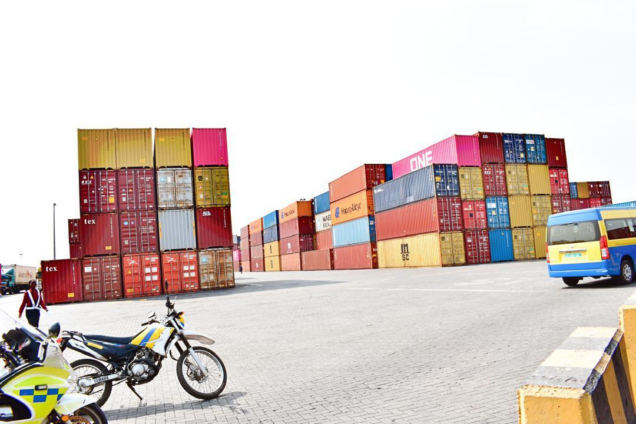adverts
The Electricity Company of Ghana (ECG) is in the spotlight after the Association of Ghana Industries (AGI) strongly condemned the utility provider for allegedly importing over 1,000 containers of electrical cables—a move AGI says violates local content laws and undermines the country’s industrialisation agenda.
In a sharply worded statement signed by AGI’s CEO Seth Twum-Akwaboah, the association described the imports as not only “most unfortunate” but also potentially unlawful under L.I. 2354, the Local Content and Local Participation in Electricity Supply Industry Regulations, 2017.
“For a state institution that is already saddled with huge debts, this is most unfortunate,” the AGI said.
adverts
The group called on the Minister of Energy and Green Transition to launch a full-scale investigation into what it considers a “critical national issue” that puts thousands of Ghanaian jobs at risk.
AGI’s fury stems from persistent reports that ECG—a debt-ridden state utility—has been importing aluminium conductors in large volumes despite the fact that Ghanaian manufacturers can now fully meet domestic demand.
“It is sad to note that our local manufacturers of aluminium conductors, who continue to create jobs, are owed huge sums of money, yet importers are promptly paid,” the AGI lamented.
Ghana sources raw aluminium from VALCO, and several local firms have built capacity to process and supply conductors to ECG and other stakeholders in the power sector. But the recent wave of imports is seen by many as an act of sabotage against these companies.
AGI warns that such practices do not only breach regulations but also worsen Ghana’s unemployment challenge by stifling local production and favouring foreign suppliers.
AGI believes the importation is in direct violation of L.I. 2354, which mandates prioritisation of local content in the electricity supply chain.
“Importing such huge volumes breaches L.I. 2354,” the AGI stated bluntly.
The group praised ECG’s earlier role in promoting local manufacturing by encouraging the treatment of wooden poles, meter assembly, and transformer production in-country. However, this sudden reversal in policy has left stakeholders disappointed.
“This new wave of large-scale imports threatens to unravel years of progress,” the AGI warned.
AGI is calling for urgent and decisive action from government, demanding the following:
- A thorough audit of all ECG imports over the past year
- Nullification of all contracts that violate L.I. 2354
- Immediate payment of debts owed to local cable manufacturers
- Public disclosure of individuals and firms behind the container imports
- Tightening of internal controls within ECG to prevent recurrence
In a direct message to the Ministry, AGI added:
“We cannot allow an SOE to act as a barrier to national growth. Local industries must be empowered, not undermined.”
AGI also clarified a key issue in the debate—what qualifies as “local content”.
“Local suppliers who merely import finished items do not qualify to be classified as local content suppliers,” the statement emphasized.
This clarification is seen as a warning to businesses that label themselves as local simply because they operate in Ghana, while their products are manufactured abroad.
While reaffirming its commitment to support the government’s industrialisation agenda, the AGI made it clear that time is running out for mere promises.
“Without rigorous enforcement of significant local content as a strategic option to accelerate economic growth, Ghana’s quest for industrialisation cannot be achieved.”
AGI concluded by urging the public, civil society, and Parliament to keep watch on this unfolding situation, warning that if left unchecked, the ECG saga could become a blueprint for how not to manage public procurement and local empowerment.
Click the link Puretvonline.com | WhatsApp Channel to join the whatsapp channel
GOT A STORY?
Contact/WhatsApp: +233243201960 or Email: manuelnkansah33@gmail.com


